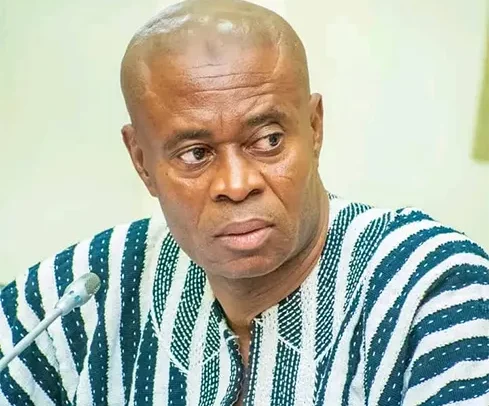Yusif Sulemana
The Deputy Minister of Lands and Natural Resources, Alhaji Yusif Sulemana, has assured that the ongoing review of the Minerals and Mining Act, 2006 (Act 703), is being carried out through broad stakeholder consultations to address challenges in the sector and align Ghana’s mining laws with global best practices.
Speaking at the Mining and Minerals Convention 2025 under the theme, “Shaping the Future of Ghana’s Gold Industry,” he said mining remains a critical pillar of Ghana’s economy, contributing significantly to government revenue, foreign exchange earnings, and job creation.
“Today, mining remains the bedrock of our nation’s economic stability. Its presence underscores Ghana’s global appeal as a mining destination and reflects the strength of our bilateral partnerships,” he noted.
The minister pointed to the country’s position as Africa’s leading gold producer and its global ranking of 60th, with multinational giants such as Newmont and AngloGold Ashanti operating in the country, a testament to the sector’s attractiveness to international investors.
Despite these achievements, he cautioned that Ghana continues to face challenges including inadequate infrastructure, limited social development in mining communities, and the persistent problem of illegal mining, which undermine the industry’s full potential.
Alhaji Sulemana outlined a number of policy interventions aimed at transforming the sector. These include the formalisation of small-scale mining through responsible cooperative structures, skills development, and the use of modern equipment to reduce illegalities and promote community ownership.
Other measures, he added, focus on strengthening local content and participation to ensure Ghanaians benefit more from the mining value chain, enforcing environmental sustainability, and enhancing land reclamation and restoration policies.
“We believe mining must continue to serve as a catalyst for industrialisation, infrastructure development, and community empowerment. We are committed to ensuring that the benefits of Ghana’s mineral wealth are felt not just by investors, but more importantly by ordinary Ghanaians such as our youth, our women, and our mining communities,” he said.
The Deputy Minister further explained that the government’s reclamation policies are not only aimed at restoring abandoned mine sites but also at converting them into productive agricultural zones and community assets, marking a shift from traditional mining practices.
He stressed the urgency for the country to transition from being primarily an exporter of raw minerals to becoming a hub for value addition through downstream processing and responsible resource mobilisation.
“The future we are building requires a strong partnership between government, the private sector, financiers, civil society, academia, and of course, our communities,” he noted.
“Ghana’s mineral wealth must become the backbone of a sustainable and inclusive economy. Together, we can ensure that Ghana’s gold is not just a resource beneath our soil, but a legacy of prosperity for our people,” he added.
The two-day convention, which ends today Wednesday, September 10, 2025, has in attendance key stakeholders in the mining industry, including the Chief Executive of the Ghana Gold Board, Sammy Gyamfi, executives of the Chamber of Mines, policymakers, and international investors.
By Ebenezer K. Amponsah


